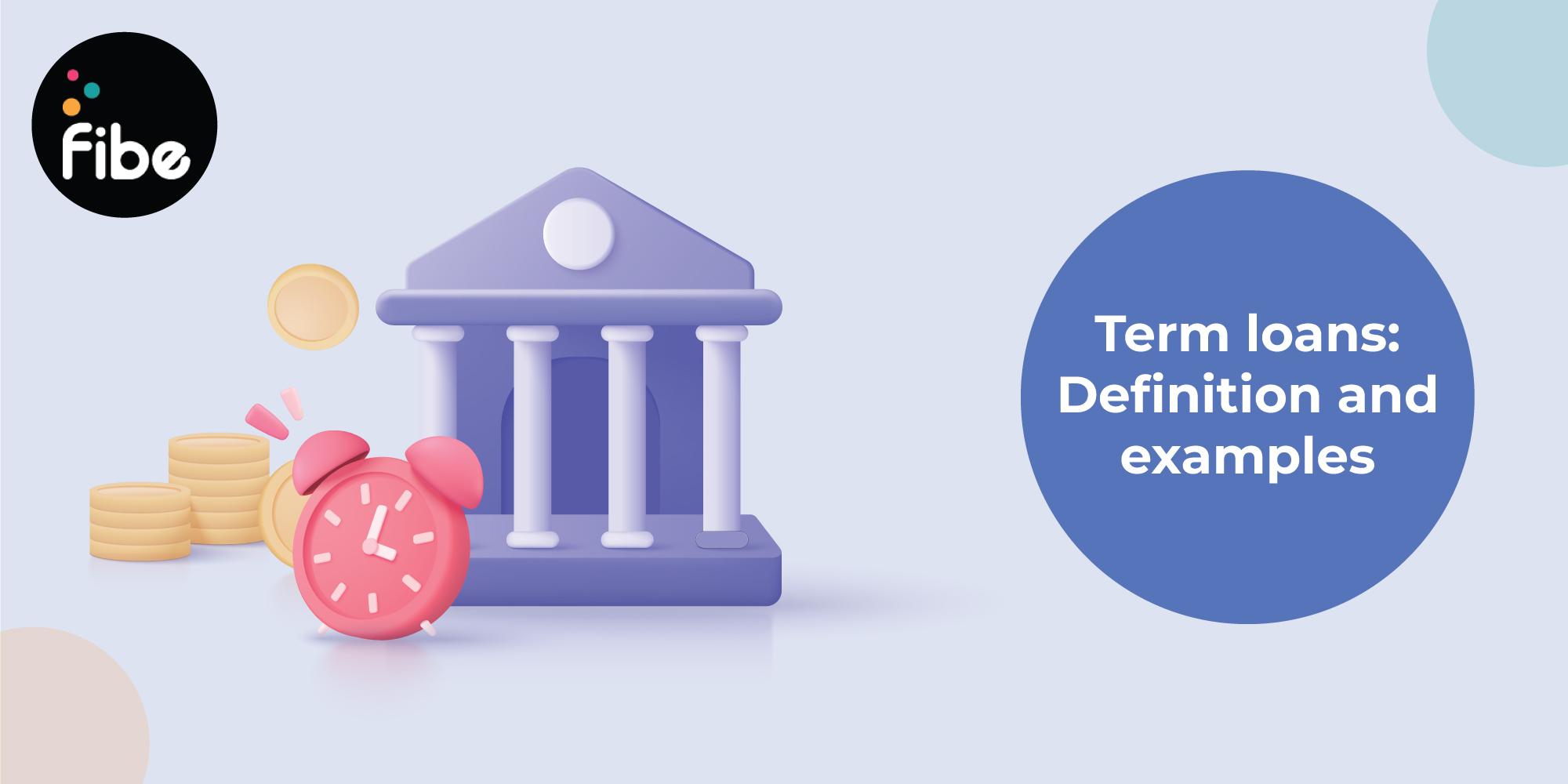- Home
- Blogs
- Personal Loan
- What Is Term Loan
Term Loan: All you need to know
Reviewed by: Fibe Research Team
- Updated on: 28 Dec 2023
Reviewed by: Fibe Research Team

A term loan offers an excellent means of financing when a business experiences a shortage of funds. Businesses need capital to cover their day-to-day operations and capitalise on growth opportunities. These expenses include paying rent for the workspace, purchasing raw materials, paying suppliers and covering utility bills.
Read on to learn what is a term loan, its types and more.
For better clarity on the concept, here’s all you need to know about the term loan’s definition. A term loan is a financing option for businesses with specific borrowing terms. It helps organisations address their operational requirements and tap into potential growth opportunities.
The repayment amount includes a part of the principal and the interest. The interest rate for the loan can be fixed or floating. Lenders assess the business’ creditworthiness by checking their credit score and financial standing before approval.
Also Read: Long Term Or Short Term Loans
A term loan is categorised into the following types:
Short-term loans have a tenure of less than a year and are ideal for businesses requiring urgent funds to meet various needs. These loans are offered to companies not eligible for a line of credit.
Intermediate-term loans are ideal to address business requirements for a slightly more extended period, as these forms of credit have tenures varying between 2 and 5 years. Businesses can conveniently repay these loans in equated monthly instalments (EMIs) from their cash flow.
Long-term loans are ideal for businesses planning to expand their operations or make investments. After all, these loans have higher repayment options that can go up to 30 years. If you plan to start a new venture, this type of credit is the best option.
That said, lenders may require you to pledge your valuable asset as collateral to manage the risk of default. Simply choose monthly or quarterly EMIs to repay the loan amount conveniently from your business’s cash flow or profits.
Also Read: How Short Term Loans Work?
Here are some attractive features and benefits associated with a term loan:
An alternate way of getting finance for your business is by opting for credit at Fibe. A Fibe Personal Loan offers a quick way to tackle your business’ planned and unplanned financial emergencies.
At Fibe, you can avail of a loan of up to ₹5 lakhs with easy-to-meet eligibility criteria and minimal paperwork. You can get this loan at affordable interest rates and convenient repayment options for added convenience. Download the Personal Loan App or log in to our website and apply today to get the funding quickly!
A term loan is a credit facility offered to businesses to meet operational requirements. Remember, you need to repay the loan within a fixed timeline.
You can categorise term loans into 3 types:
The main differences between demand and term loans are flexibility and affordability. While the former does not have a fixed repayment schedule, you need to repay your term loan as per the set timeline. Also, lenders may insist that you repay the loan anytime, even within a short notice period. That’s not so in the case of term loans.
To apply for a term loan, you must be an Indian citizen. The business must be engaged in the particular sector for at least 3 years. Lenders also check the credit score and finances to ensure the company is financially strong.
A few term loan examples include personal loans, vehicle loans, home loans, loans against property and many others. You can choose an option that best suits your requirements.
Here’s a term loan example to help you understand the concept better. Suppose you require immediate funds to purchase equipment for your business. In this case, you can get a short-term equipment financing loan with a tenure of 12 months. You can repay the borrowed amount within the stipulated timeline without hassles.